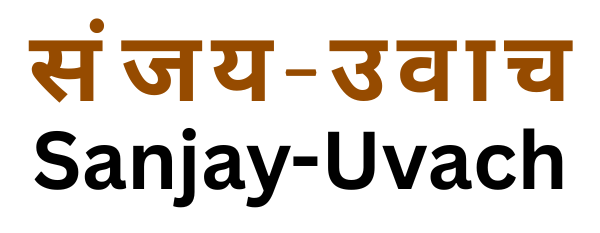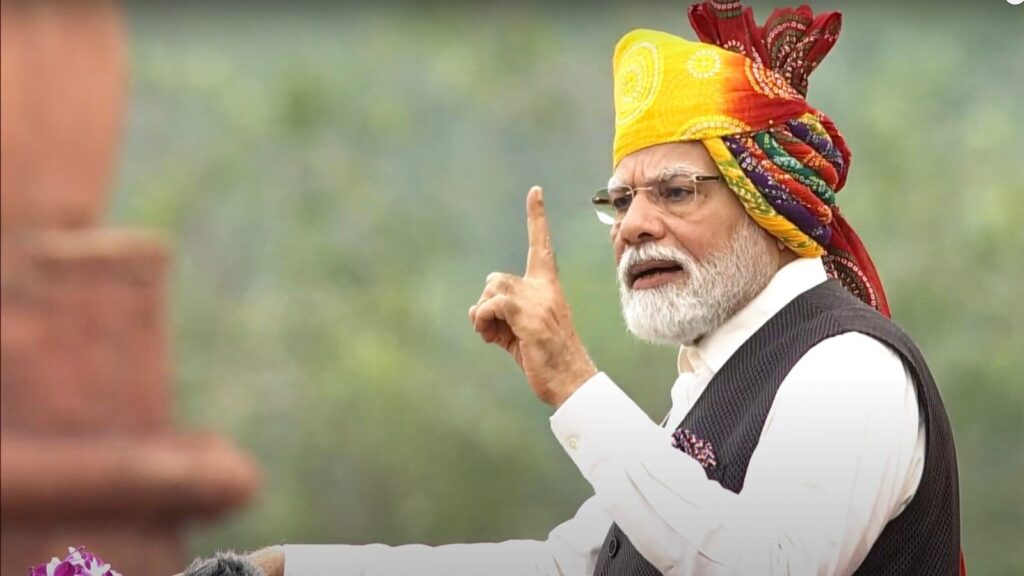We were meeting after nearly five decades. Seven of us. Class-mates from our primary school in Lucknow. On way to the bottom of the second bottle of whiskey, we discussed our families, other class-mates whose whereabouts were not known, school-teachers (especially Ms. Pal and Ms. Kaur), quality of construction of our apartments and, of course, home remedies for diabetes & hyper-tension. We eventually arrived at our favourite destination. Politics. As Yogi-ji’s omissions & commissions had left very little scope for controversies at the state level (his mitti-mey-mila-doonga warning to history-sheeters notwithstanding), we moved to more interesting national politics. We talked about Prime Minister Modi in detail, the physicality of his work and the doubts that come up every time someone tries to guess his replacement. It was way past the midnight when we called it a day.
“Say not, I have found the truth, but rather, I have found a truth”, the great Lebanese-American writer-poet Gibran Khalil Gibran had made this suggestion. In fact, there is no ultimate truth and the truth that we think we have found is one from amongst many. Prime Minister Modi, like the Prime Ministers before him, is “a” truth which, for starters, cannot be denied a major chapter in the political history of our country.
A generic-Hindu reaching out to psychologically-marginalized Hindus.
Till a decade or two back, the Hindu politicians of most hues were hesitant of demonstrating their religiosity. One could wear one’s caste on one’s sleeves but presenting oneself as a generic Hindu was considered a negative in politics. Even today, there are many popular Hindu politicians who avoid openly participating in Hindu events or associating with a Hindu cause for the fear of rubbing their electoral prospects, on the other side of the political spectrum, the wrong way.
Modi is visible through his presence in development, redevelopment and inauguration of temples and places of religious interest to Hindus. He attends religious gatherings, visits places of import to Hindus, performs rituals at river-banks, meditates in mountains and, happily, puts his foot in the door on the issues involving Hindu religious activities overseas. Besides being born a Hindu and practicing Hinduism devoutly, Modi has presented his Hindu credentials to the world un-apologetically. This hurts certain sections of our society. The caste and geography based electoral constructs of some political families are getting eroded as he reaches out to the political constituencies that they had built and curated over years. They are irked, helplessly at that, witnessing Modi’s two-pronged strategy in the Hindu politico-religious space. One, he has successfully emphasized a common apprehension that the strategic, en-bloc patronage by Muslims given to select political parties may render Hindus inconsequential in the larger scheme of things in the country. The other, his assertion that Hindu nationalism needs to cut across castes & geographies and all should come under a wider Hindu social umbrella has started resonating, though not with the desired success.
His detractors have been trying hard to push a narrative that his outreach is to the socio-economic and the religious detriment of other religions. But the continuing progress of Sikhs, Jains, Parsis and certain religious denominations of Muslims has answered the question appropriately.
He loves to hug, exceptions notwithstanding.
Handshakes are formal. Despite the fact that our brain has most neural connects with our hands, handshakes are pure-vanilla acknowledgement by two persons of each other’s presence. Modi prefers to hug. Kings, Emirs, Crown Princes, Presidents and Prime Ministers, he has hugged them all. He does have a gender bias, though, and has avoided hugging the fairer sex. We all were very expectant when he met Giorgia Meloni, the affable Prime Minister of Italy. But once again, he disappointed all. Another person he kept, quite appropriately, at a handshake-distance is the buffoon from Canada, Justin Trudeau.
Quite a few of us wonder as to how does hugging help. As a strategy, a hug unequivocally conveys that some may be first-among-equals but we are equals nevertheless. The physicality of his hugs connotes that India has arrived and, if we need you, you too need us. Hugging, especially the neighbours, re-assures of peaceful co-existence and mutual good. I stand to be corrected for saying that none of our former Prime Ministers were as huggingly-confident as Prime Minister Modi.
Even Pandit Nehru seemed to have predicted his arrival.
I am sure, former Prime Minister Jawaharlal Nehru had the likes of Modi on his mind when he said “Success often comes to those who dare to act. It seldom goes to the timid who are ever afraid of the consequences”.
Not that those before him didn’t know what was needed to correct certain historical wrongs or to redefine some old socio-political beliefs or to get a few monkeys off the country’s back. They just didn’t have the courage of conviction which Modi has in abundance. Sample some of Modi’s decisions which his predecessors have only been procrastinating about.
The Jan Dhan Yojana led to direct transfer of benefits to the poor via whopping 32 crore bank accounts which, otherwise, were lost in transit in the old system full of corruption. Demonetization of currency notes, termed as a failed initiative by his critics as nearly entire black money came back to the formal banking system, ensured that the black money so unearthed went through a strict regimen of taxes, penalties and confiscation and, eventually, add to our country’s coffers. Goods and Services Tax (GST), essential to integrity and equity in the indirect tax regime in modern India, deferred many times for reasons of inadequate preparations at the backend, is working successfully now. Putting paid to the detractors’ warnings of an uprising by masses and bloodbath, he ensured abrogation of Article 370 which had created a country within the country through a special status to the State of J&K. Defying the conventional wisdom that Personal Laws in India cannot be tweaked for any reason howsoever valid, he enacted a law against triple-Talaq, bringing huge relief to Muslim women. Throwing the spinelessness of our non-response to 26 /11 (India’s 9/11 moment) into the dustbin of eminently forgettable history, the responses to Uri and Pulwama and, later, proud return of Wing Commander Abhinandan, restored Indians’ confidence in India’s capabilities which were neutered by some political dispensations in the past.
Though he is statistically disadvantaged in the current parliament, in the days to come the country is sure to witness new or renewed activities on the issues like UCC, NRC, CAA, One-Nation-One-Election, labour laws and, also, the agriculture reform laws withdrawn in 2020.
Foreign-relations stand diaspora-ized to a good extent.
He always meets Indian diaspora on his visits overseas. On public platforms in the countries that have large population of Indian origin. To update them on India’s achievements and to share with them the plans the country has embarked upon. As a person who has spent a few years outside of the country, I can vouch that the experience of connecting with one’s country at this level is emotionally overwhelming. Also, it is elating for the diaspora to know that their homeland cares for and thinks of them beyond remittances and nostalgia-driven tourism. No doubt, Modi understands the importance of diaspora and has inculcated a relationship with them. On one hand he successfully showcases the diaspora’s capabilities through these public meetings and conveys a message that he can draw from their resourcefulness to strengthen bilateral relationships. On the other, his strong connect with the diaspora gives a subtle hint to the world that India can leverage its network of multi-national diaspora, when needed, to put its weight behind regional or global issues.
Wing Commander Abhinandan was returned by Pakistan within two days of his capture in 2019 without having to fire a bullet. Operation Samudra Setu, in 2020, saw thousands of Indians being brought home on ships from across the globe during coronavirus pandemic. Indian Armed Forces, under Operation Devi Shakti, evacuated Indian and foreign nationals from Afghanistan in 2021. Thousands of students were brought back home safely from war-torn Ukraine in 2022 under Operation Ganga. Naval Ships and Air Force were deployed to evacuate Indians stranded in Sudan in 2023 under Operation Kaveri. Operation Ajay saw safe return of Indians from Israel after the Hamas attack in 2023. Energy was purchased from Russia in 2023 despite embargo, without generating much negativity about India on the world stage. Also, the world saw India’s heft in the imbroglio with Justin Turd’O (pun intended) of Canda in 2024 when India called his bluff and forced him to downsize his High Commissionerate. Recently, in 2024, Indians were brought back home safely from war-torn Syria.
It’s a confident India, ready to protect its own. Today, the Indian diaspora all over the world are assured that the homeland will come forward and help them through crises. The message to the world is loud and clear. India cares and, also, India doesn’t care. Whilst driving India’s interests abroad, Modi has cleverly built a formidable image of his own on international forums. This has earned him incremental equity domestically also.
It was an elephant that was killed.
Mahabharata mentions that Guru Dronacharya was almost invincible and it was clear that the war could not be won without killing him. A strategy was devised to spread the rumour of death of his son Ashwathama. An elephant named Ashwathama was killed by Bheem and Yudhisthira was persuaded to shout out aloud “Ashwathama hataha, naro va kunjarova” (Ashwathama died but it is not certain whether it was a Dronacharya’s son or an elephant). The words “not certain whether it was a Dronacharya’s son or an elephant” were deliberately drowned in the din of the battle-field. Hearing this, a disheartened Guru Dronacharya laid down his weapons and, seeing the opportunity, Dhristadyumna killed him.
Building on the disappointing response to Modi’s battle-cry of “Abki baar, char sau paar” (over 400 parliamentary seats this time) in the general elections of 2024, his detractors attempted to create an Ashwathama hataha moment, grapevine-ing that his time was up. The Dhristadyumna(s) started looking for opportunities that were actually not there. Un-intimated by lack of numbers, Modi is back in the saddle, riding and collecting trophies in Haryana, Maharashtra and Delhi.
Life is full of alternatives, not choices.
Circumstances create alternatives, not choices. Our history has examples galore where dark-horses or those not even in the reckoning have turned up as alternatives. Comforted, I (and other commoners like me) am not over-worried about finding an alternative to Prime Minister Modi. But surely there are serious concerns knowing that the incumbent is extra-ordinarily active, demolishes old constructs, defies conventional wisdom, treads the path not travelled by others for the risks involved, is masculine in thoughts & actions and arouses extreme emotions. Like it or not, changing the agenda set by Modi is going to be well-nigh impossible for anyone who comes in his place.

